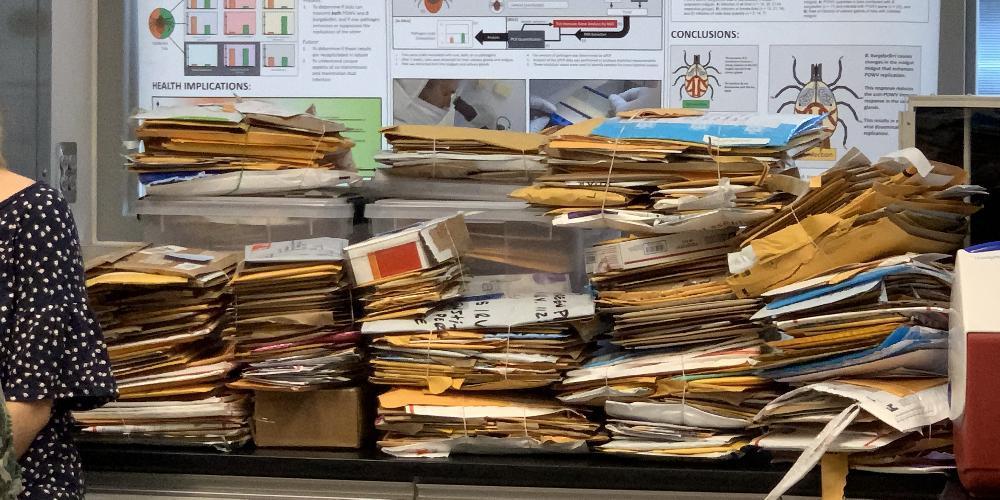Upstate’s tick testing program opens for another season
Upstate Medical University’s Tick Testing program opens for another season.
“We were elated by the number of individuals who sent us ticks to analyze since we began the testing program in July 2019. These were ticks found in their backyards, on themselves, their family members and pets,” said Saravanan Thangamani, PhD, a professor of microbiology and immunology at Upstate and director of the SUNY Center for Vector-Borne Diseases. “But the cost of testing ticks has become prohibitive as we received more than 32,000 ticks sent to us through the mail. We were processing ticks all day and all night.”
At one point, the program was receiving 120 ticks a day for testing.
To help defray costs, there will be a charge for testing the tick for 16 different diseases as well as tick type. The costs for non-Onondaga County residents will be $75 per tick; Onondaga County residents will pay $37 since the county has provided some funding through a collaborative agreement with the program.
Thangamani said that the program continues to seek funding to help further offset the costs of testing.
Individuals will be asked to pay the testing fee when registering their tick for testing online. Once the tick arrives at the lab, results will be emailed within three to five business days.
When submitting ticks, researchers want to know the date the tick was collected, whether it was attached to an animal or human and whether it was found at a public or private location. The website also offers information on how to package and send ticks to researchers. To submit a tick for testing, go here: https://nyticks.org/
More than 32,000 ticks have been tested since the tick testing program began. About one in three ticks were found to be carrying at least one pathogen. Nearly 3,000 ticks were collected from Onondaga County residents, with 36.4 percent found to be carrying disease.
MAIL CALL: Upstate's tick testing program has attracted more than 32,000 ticks that have been analyzed by researchers headed by Saravanan Thangamani, PhD, professor of microbiology and immunology at Upstate and director of the SUNY Center for Vector-Borne Diseases.

